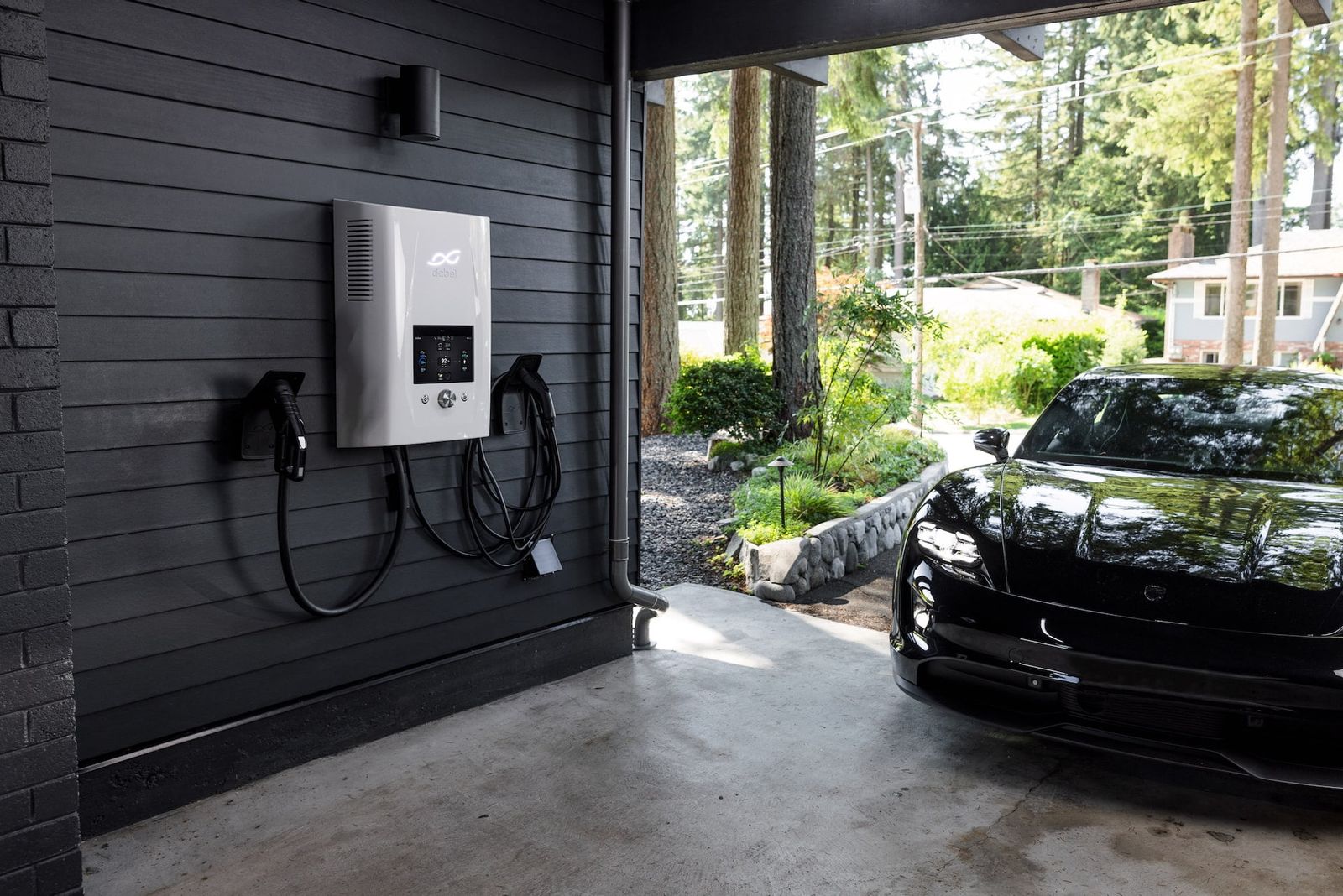Installing solar charger for EV can revolutionize the way you power your vehicle, and can unlock endless possibilities for your EV.
The electrification of the automotive industry has given us more options than ever before. From electric scooters to electric cars, electric vehicles (EVs) are everywhere. But powering these EVs is not only expensive, it can also be difficult. That’s where solar chargers come in. Read on to learn more about the benefits of using a solar charger for an EV, and how to choose the best solar charger for your EV.
Introduction to Solar Chargers for EV
With the growing popularity of electric vehicles, more and more people are looking for ways to power their EVs. Solar chargers for EV are becoming increasingly popular for those who want to reduce their carbon footprint and save on fuel costs. Solar chargers are powered by sunlight and can be used to charge your EV’s battery. Solar chargers can be used to reduce fuel costs, and they can be used in remote locations where there is no access to conventional electricity. Installing a solar charger for your EV can help you save money and reduce your environmental impact.
How does a solar charger for EV work?
A solar charger for EV works by using the power of the sun to charge the EV’s battery. Solar panels are used to capture and convert sunlight into electrical energy. The electrical energy is then stored in the EV’s battery. Solar chargers are usually connected to the EV’s battery through a controller, which regulates the voltage and current flow. The amount of energy that the solar charger can generate depends on the size and type of solar panel used.
Benefits of using a solar charger for EV
There are many benefits to using a solar charger for EV, including:
- Cost savings: Solar chargers can help you save money on fuel costs by reducing your dependence on conventional electricity.
- Environmental impact: Solar chargers can help reduce your emissions since they don’t use any fuel or produce any harmful emissions.
- Convenience: Solar chargers are easy to install and use, and can be used in remote locations where there is no access to conventional electricity.
- Reliability: Solar chargers are reliable since they rely on the sun, which is an abundant source of an energy.
Cost savings and environmental impact of using a solar charger for an EV
Using a solar charger for EV can help you save money and reduce your emissions. By reducing your dependence on conventional electricity, you can reduce your fuel costs by up to 50%. Additionally, solar chargers don’t use any fuel or produce any emissions so you can reduce your environmental impact.
How to choose the best solar charger for your EV
When choosing a solar charger for your EV, there are a few things to consider. First, you should determine the size and type of solar panel that you need. The size of the solar panel will depend on the amount of energy that you need to generate. You should also consider the type of solar panel that you need, as there are different types available.
You should also consider the cost of the solar charger. Solar chargers can range in price from a few hundred dollars to several thousand dollars. Make sure to compare prices and features to find the best deal.
Finally, you should consider the installation process. Installing a solar charger for your EV can be a complicated process, so make sure to find a reliable installer.
Different types of solar charger for EV
There are a few different types of solar charger for EV. The most common type is a rooftop solar charger, which is mounted on the roof of the EV. This type of solar charger is easy to install, and it can generate a large amount of energy.
Another type of solar charger is a portable solar charger, which is portable and can be used in remote locations. Portable solar chargers are great for those who want to charge their EV while on the go.
Finally, there are solar chargers that are designed to be integrated into the EV’s body. These solar chargers are usually built into the EV’s design, and they can be used to charge the EV while it is in motion.
Installation of a solar charger for EV
Installing a solar charger for an EV can be a complicated process, so it is important to find a reliable installer. The installation process will vary depending on the type of solar charger that you are installing. If you are installing a rooftop solar charger, you will need to mount the solar panels on the roof of your EV. For a portable solar charger, you will need to connect the solar panels to the EV’s battery. For an integrated solar charger, you will need to connect the solar panels to the EV’s wiring.
Troubleshooting a solar charger for an EV
If you are having trouble with your solar charger, there are a few things that you can do to troubleshoot the issue. First, ensure that all of the connections are secure and that the solar panels receive enough sunlight. You should also make sure that the controller is properly connected to the EV’s battery. If the problem persists, you should contact a qualified technician for assistance.
Tips for maximizing the effectiveness of a solar charger for an EV
Here are a few tips for maximizing the effectiveness of your solar charger:
- Make sure that the solar panels are receiving enough sunlight.
- Clean the solar panels regularly to ensure that they are working at their maximum efficiency.
- Install a charge controller to regulate the voltage and current.
- Use a timer to ensure that the solar charger is only running when it is receiving enough sunlight.
- Make sure to use the right cables and connectors for the installation.
Conclusion
Installing a solar charger for your EV can revolutionize the way you power your vehicle. Solar chargers are a great way to reduce your fuel costs and reduce your environmental impact. When choosing a solar charger, make sure to consider the size and type of solar panel that you need, as well as the cost and installation process. With a suitable solar charger, you can unlock endless possibilities for your EV. Call Now at 1300 646 419 to buy yours.
FAQs (Frequently Asked Questions)
- What is a solar charger for EV?
A solar charger for EV is a device that utilizes solar energy to charge electric vehicles (EVs). It harnesses sunlight through solar panels and converts it into electricity, which is then used to charge the EV’s battery.
- How does a solar charger for EV work?
A solar charger for EV works by capturing sunlight through solar panels and converting it into direct current (DC) electricity. This electricity is then either directly used to charge the EV’s battery or stored in a battery system for later charging.
- What are the benefits of using a solar charger for EV?
Using a solar charger for EV offers several benefits, including:
- Cost savings on electricity bills by utilizing free solar energy.
- Reduction of carbon emissions and environmental impact.
- Increased independence from the grid, especially in remote locations.
- Potential access to renewable energy incentives and rebates.
- Can I use a solar charger for EV with any electric vehicle?
Solar chargers for EVs are generally compatible with most electric vehicle models. However, it is recommended to check the specifications and compatibility of the charger with your specific EV before making a purchase.
- How long does it take to charge an EV using a solar charger?
The charging time using a solar charger for EV depends on several factors, including the capacity of the charger, the efficiency of the solar panels, the sunlight conditions, and the capacity of the EV’s battery. Charging times can vary, but typically it takes several hours to fully charge an EV using solar power.
- Can a solar charger for EV charge the EV’s battery during cloudy or low sunlight conditions?
Solar chargers for EVs can still generate electricity even during cloudy or low sunlight conditions, although the charging efficiency may be reduced. Additionally, some solar chargers have battery storage systems that store excess solar energy for later use, ensuring continuous charging even when sunlight is limited.
- Do I need additional equipment or modifications to use a solar charger for EV?
Generally, a solar charger for EV comes with the necessary components and connectors for charging your EV. However, it is recommended to consult with the manufacturer or a professional installer to ensure compatibility and proper installation of the charger.
- Can I use a solar charger for EV at home and on the go?
Yes, solar chargers for EVs are designed for both home and on-the-go use. They can be installed at your residence or used in portable configurations, allowing you to charge your EV wherever solar energy is available.
- Are there any maintenance requirements for a solar charger for EV?
Solar chargers for EVs require minimal maintenance. Regular cleaning of the solar panels to remove dust or debris is recommended to maximize charging efficiency. Additionally, it is advisable to inspect the charger’s components periodically and follow the manufacturer’s maintenance guidelines.
- Can I connect multiple solar chargers to charge my EV faster?
In some cases, it is possible to connect multiple solar chargers to increase charging speed. However, this depends on the specific configuration and capabilities of the chargers. It is recommended to consult with a professional to ensure safe and efficient charging practices.
- Are there any incentives or government programs for solar chargers for EVs?
Depending on your location, there may be incentives, tax credits, or government programs that support the adoption of solar chargers for EVs. It is advisable to research local regulations and incentives to explore potential financial benefits.







